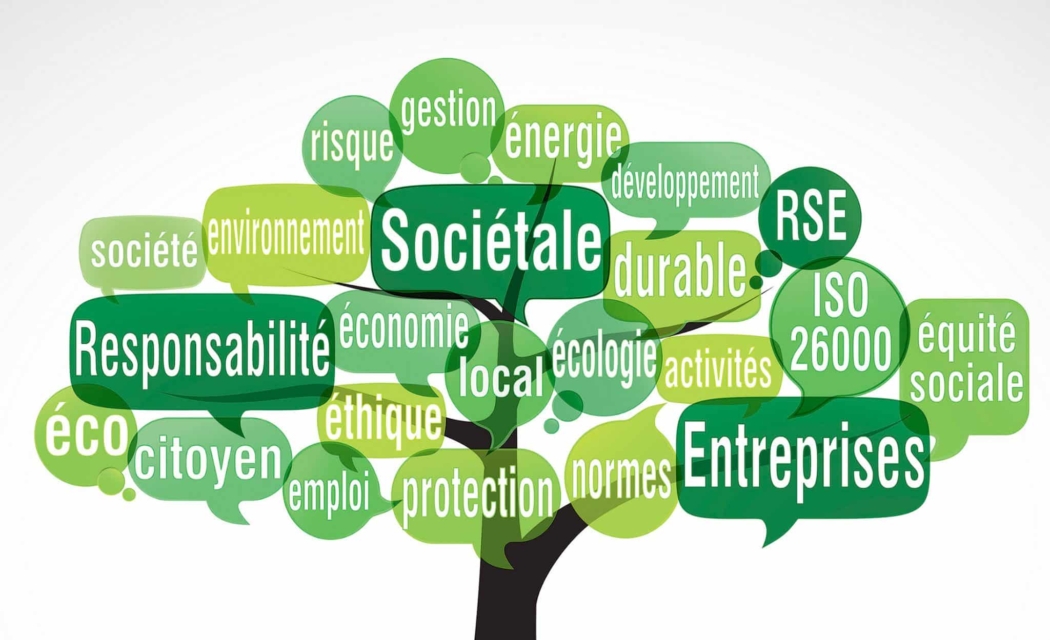“CSR: the winning asset for business growth and regional development”. Green Innovation publication, Interview with Caroline Véran (October 2020).
Philosophy, political science, EHESS, youth press, then sustainable development. Your background is very interesting. What prompted you to get involved in sustainable development and create Croissance Bleue?
Philosophy has helped me to understand the world and guides my choices every day, based on two convictions
– conquering our humanity means fighting obscurantism and alienation in all its forms;
– humanism in the 21st century will be embodied in sustainable development and CSR. Ethical concerns are no longer the prerogative of sages and politicians, but also of citizen-consumers and entrepreneurs.
In my view, the 20th century was marked by the blindness of decision-makers on all sides, who for almost 30 years ignored the studies carried out by the international scientific community. As early as the 1970s, they were warning of the foreseeable scarcity of energy resources and the disastrous consequences of unbridled industrial development on the environment.
The twentieth century also brought to a climax the alienation of the greatest number of people to the society of over-consumption, at the cost of deplorable working conditions and incomes, and with a quarter of humanity suffering from obesity, according to the latest WHO (World Health Organization) census. In short, the era of industrial omnipotence and over-consumption has tainted part of our humanity, because it has been achieved at the expense of our natural and social environment. And today, we are paying a heavy price with climate change, the destruction of biodiversity and the multiplication of social fractures.
So I see sustainable development as a cultural, political and scientific movement that enables us to reclaim a part of our humanity and embody a new humanism.
Intellectually, I’m a child of the Enlightenment culture of philanthropy, a taste for nature, ethics, emancipation through access to knowledge, and the quest for a fairer, freer world. This is the thread that led me from philosophy to the creation of the Croissance Bleue agency.
As a philosophy student, my first thesis was entitled “Is humanitarianism humanism?
I then worked in the media and launched a digital start-up, before becoming a committed entrepreneur in 2014, and choosing to focus all my consulting and entrepreneurial activities on sustainable development and CSR issues.
I first launched Recyclit (recyclit.fr, labelled COP21) at the Paris Climat 2015 conference, an innovative waste recovery and upcycling scheme aimed at the general public.
At the same time, I worked on corporate social responsibility issues and created new CSR methodologies. At the same time, I set up Croissance Bleue, an agency for committed companies and brands, with the aim of enabling companies to grasp these issues by approaching them as a lever for growth and added value.
The health crisis we’ve just experienced is unprecedented. How do you view this event (as a philosopher and business leader)? Do you think that COVID-19 will profoundly change the way companies operate? And, more specifically, do you think CSR will emerge stronger?
From a philosophical point of view, this COVID-19 crisis is quite unique, and brings us back to the fragility of humanity.
We are constantly advancing in terms of technical, technological, IT and digital developments, and all of a sudden we are brought back to our finiteness, and this on the scale of humanity as a whole! In a way, technology and science have shown their limits. It’s an existential experience we’ve all had at this point.
So it brings us back to the question of the meaning of existence, how we act, what we live for and how we want and can live now. This pandemic is a crash test, a foretaste of what can come back cyclically. Unfortunately, this is now part of our reality, and we need to organize our lives accordingly.
As a business leader, I see CSR as a lever for growth and for transforming organizations on social, societal and environmental levels.
I see CSR as a lever for growth and for transforming organizations on social, societal and environmental levels.
Today, you can no longer build a growth model without CSR. CSR is a real answer to transforming the company and moving towards a model of shared values. Companies don’t have to arbitrate between profit on the one hand and ethics on the other. Quite the contrary, in fact! It can solidly articulate them and make them complementary to benefit from sustainable economic growth. I firmly believe that the need for social and environmental commitment is a tremendous opportunity for companies and brands to strengthen themselves, to innovate, to generate preference and therefore to grow.
The company does not have to arbitrate between profit on the one hand and ethics on the other.
CSR also makes it possible to provide relevant responses to the crisis, and to work towards building a more balanced and fairer world. During the COVID-19 pandemic, it was the companies committed to a CSR approach that were the most responsive and agile in implementing solidarity actions.
At the Produrable trade show, you’ll be leading a round-table discussion on the subject of the importance of territorial anchoring for companies. Is the territory the key for companies and their CSR strategies? Is it the key to sustainable, inclusive growth, and perhaps even greater solidarity?
Whether you’re a politician, a business leader, an association or a private citizen, when you want to act effectively, you absolutely have to ask yourself the question of scope. What is the best perimeter for acting, federating and influencing, given the means at my disposal?
The question of scope is fundamental in more ways than one!
The territory is a particularly appropriate and effective scale on which to build a CSR approach: it enables us to test and implement better risk management, particularly when setting up a subcontracting chain, or to reduce distances and thus limit our environmental impact. The company also has a real responsibility to the area in which it operates! It’s not just there to make a profit without taking the surrounding ecosystem into account. It has a role to play in revitalizing the economic fabric, creating social links, reactivating local solidarity and implementing concrete actions.
The territory is a particularly appropriate and effective scale on which to build a CSR approach.
The company also has much to gain for itself by acting strategically on its territory. Why? Because the region is often home to a wealth of talent, expertise in engineering or crafts, dynamic associations, dynamic and committed initiatives, and so on. Making the most of local ecosystems is a real guarantee of growth and innovation!

